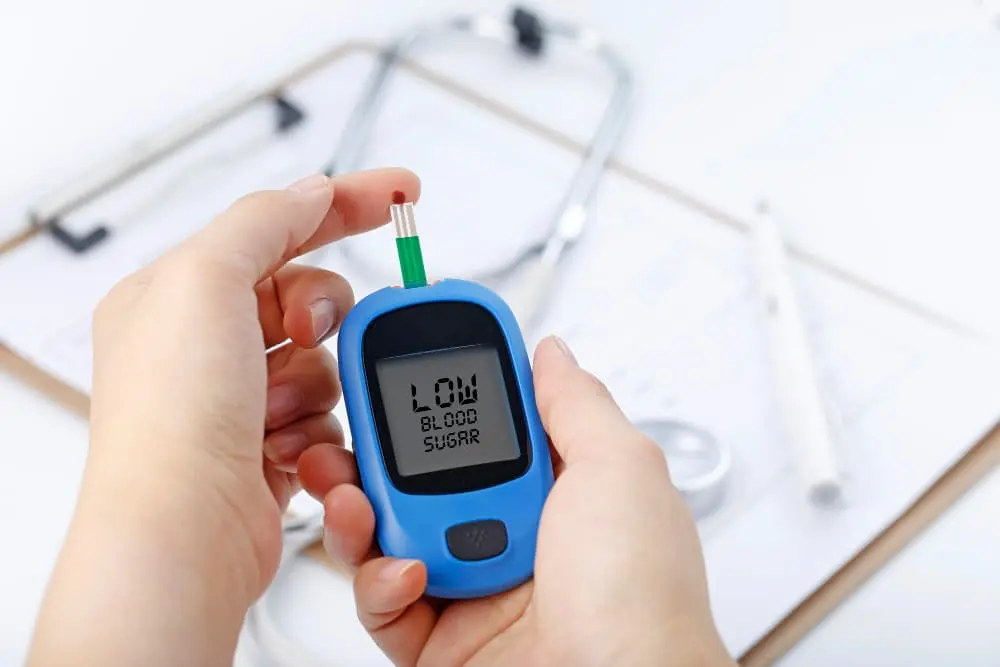
Living with diabetes doesn’t mean you have to compromise on your oral health or the dream of a complete, confident smile. While diabetes presents unique challenges, dental implants for diabetic patients can still be a safe and effective solution for replacing missing teeth. However, it’s crucial to approach the process with knowledge and understanding.
This comprehensive guide will walk you through the critical factors to consider, potential risks to be aware of, and essential precautions to take to ensure a successful dental implant journey, even with diabetes. Whether you’re newly diagnosed or have been managing diabetes for years, we’ll equip you with the information you need to make informed decisions about your oral health and achieve a smile that radiates confidence.
Understanding the Connection Between Diabetes and Oral Health
Diabetes, whether type 1 or type 2, can have a profound impact on your overall well-being, and your dental health is no exception. Recognizing this connection is particularly crucial if you’re considering dental implants.
How Diabetes Affects Oral Health
Elevated blood sugar levels can create an oral environment that’s more favorable for bacterial growth, increasing the risk of gum disease (periodontitis) in people with diabetes. This infection targets the tissues that support your teeth, potentially leading to bone loss and even tooth loss, which can directly impact the success of dental implants for diabetic patients.
Additionally, diabetes can impair your body’s ability to fight infections and heal effectively, making it challenging to recover from oral health issues and potentially complicating the process.
Impact of Diabetes on Dental Implant Success
While implants offer a reliable and long-lasting solution for missing teeth, diabetes can influence the success of the procedure. The primary concern revolves around delayed healing and an increased risk of infection at the site.
High blood sugar levels can hinder the osseointegration process, where the implant with your jawbone. This can lead to implant failure. Moreover, a compromised immune system may struggle to combat infections that can jeopardize the implant’s stability.
Studies and Research on Diabetes and Implants
Numerous studies have investigated the relationship between diabetes and dental implant success. While some research suggests a slightly higher risk of complications for individuals with diabetes seeking implants, the overall success rates remain promising, particularly when blood sugar levels are well-managed.
Research indicates that individuals with well-controlled diabetes can achieve comparable success rates with dental implants to those without diabetes. However, uncontrolled diabetes can significantly elevate the risk of failure, emphasizing the importance of proactive diabetes management in ensuring a successful outcome for those considering dental implants for diabetic patients.
Are Dental Implants Safe for Diabetic Patients?

The good news is that dental implants can generally be considered safe for individuals with diabetes, provided their condition is well-managed and they receive appropriate care throughout the process. However, it’s essential to be aware of the potential risks and take necessary precautions to ensure a successful outcome.
Evaluating the Risks and Benefits
As with any surgical procedure, placement carries inherent risks. For dental implants for diabetic patients, these risks can be slightly elevated due to potential complications associated with their condition. The primary concerns revolve around:
- Delayed Healing: High blood sugar levels can impair the body’s ability to heal efficiently, potentially slowing down the osseointegration process where the fuses with the jawbone.
- Increased Risk of Infection: Diabetes can weaken the immune system, making individuals more susceptible to infections, including those that can occur at the site.
Despite these risks, dental implants offer numerous benefits for diabetic patients:
- Improved Chewing Function: Missing teeth can make it difficult to chew properly, leading to dietary restrictions and potential nutritional deficiencies. Restore full chewing function, allowing for a wider variety of foods and better overall nutrition.
- Enhanced Oral Health: Replacing missing teeth with implants can help prevent further bone loss in the jaw and improve overall oral health.
- Boosted Confidence and Self-Esteem: A complete and beautiful smile can have a profound impact on your self-confidence and quality of life.
Conditions That May Affect Implant Success
Certain conditions related to diabetes can influence the success of dental implants in individuals with diabetes:
- Poorly Controlled Blood Sugar Levels: High blood sugar levels can significantly hinder healing and increase the risk of infection, potentially leading to failure. Maintaining good glycemic control is paramount for successful treatment in patients with diabetes.
- Gum Disease (Periodontitis): Diabetes increases the risk of developing gum disease, which can affect the bone supporting your teeth. Addressing any existing gum issues before implant placement is crucial for the long-term success of dental implants for diabetic patients.
- Nerve Damage: In some cases, diabetes can cause nerve damage in the mouth, potentially affecting sensation and healing. Your dentist will carefully assess your dental health to determine if this is a concern that could impact the outcome of dental implant treatment for diabetic patients.
Precautions to Take for Diabetic Patients
If you have diabetes and are considering dental implants, the following precautions can significantly improve your chances of a successful outcome:
- Consult with your physician: Before undergoing any dental procedure, it’s crucial to discuss your plans with your physician to ensure your diabetes is well-managed and you’re in good overall health.
- Maintain optimal blood sugar levels: Work closely with your healthcare provider to keep your blood sugar within the target range before, during, and after theNprocedure.
- Practice excellent oral hygiene: Brush and floss diligently to prevent infections and maintain a healthy oral environment.
- Follow your dentist’s post-surgery instructions carefully: This includes taking any prescribed medications, avoiding smoking, and attending follow-up appointments.
- Choose an experienced dentist: Select a dentist with experience in treating diabetic patients and a proven track record of successful placements.
By taking these precautions and working closely with your healthcare team, you can significantly increase the likelihood of a successful and complication-free experience, even with diabetes.
Pre-Implantation Considerations for Diabetic Patients

Before embarking on your dental implant journey, it’s crucial to take certain steps to optimize your chances of success, especially when considering for diabetic patients. Careful preparation and collaboration with your healthcare team can significantly impact the outcome of your treatment.
Importance of Blood Sugar Control
Maintaining optimal blood sugar levels is paramount for successful treatment in diabetic patients. High blood sugar can impair healing and increase the risk of infection, potentially leading to implant failure.
Work closely with your physician to ensure your diabetes is well-managed before, during, and after the implant procedure. This may involve adjusting your medication, monitoring your blood sugar levels more frequently, and making necessary lifestyle modifications.
Consultation with Your Dentist and Physician
Open communication and collaboration between your dentist and physician are essential for a safe and successful dental implants for diabetic patients. Your dentist will thoroughly assess your oral health, evaluate your suitability for dental implants, and discuss the procedure in detail. They will also need to be fully aware of your diabetes and any medications you’re taking, as this information is crucial for tailoring the treatment plan to your specific needs.
Your physician can provide valuable insights into your overall health and diabetes management, helping to identify any potential risks or concerns that may impact the success of dental implants for diabetic patients. This collaborative approach ensures that your implant journey is as safe and effective as possible.
Preparing for the Implant Surgery
In addition to managing your diabetes, there are other steps you can take to prepare for your implant surgery:
- Quit smoking: Smoking can significantly impair healing and increase the risk of failure. If you smoke, consider quitting or at least reducing your smoking habits before and after the procedure.
- Maintain good oral hygiene: Brush and floss regularly to ensure your mouth is as healthy as possible before the surgery.
- Follow your dentist’s pre-surgery instructions: This may include dietary restrictions, medication adjustments, or specific oral hygiene practices.
- Arrange for transportation: You may need someone to drive you home after the surgery, especially if you’re receiving sedation.
By taking these proactive steps and working closely with your healthcare team, you can optimize your chances of a successful experience, even with diabetes. Remember, preparation is key to achieving a healthy and beautiful smile.
Post-Implant Care for Diabetic Patients

The journey to a successful experience doesn’t end with the surgery itself. The post-implant phase is equally crucial, particularly for those with diabetes considering or undergoing implants for diabetic patients. Proper care and attention during this period can significantly impact the long-term success of your treatment.
Monitoring Healing and Recovery
After the surgery, your dentist will provide specific instructions on how to care for the implant site and promote healing. It’s essential to follow these instructions carefully and attend all scheduled follow-up appointments.
- Pay attention to any signs of infection: These may include increased pain, swelling, redness, or discharge from thesite. If you notice any of these symptoms, contact your dentist immediately.
- Avoid strenuous activity: During the initial healing phase, avoid activities that could put excessive pressure on the site.
- Eat a soft diet: Stick to soft foods that are easy to chew for the first few days after surgery. Gradually introduce harder foods as your mouth heals.
Managing Diabetes Post-Surgery
Maintaining good blood sugar control is essential during the post healing period. High blood sugar levels can delay healing and increase the risk of infection, potentially jeopardizing the success of your treatment.
- Monitor your blood sugar levels closely: Check your blood sugar levels more frequently than usual, especially during the first few days after surgery.
- Follow your diabetes management plan: Continue taking your medications as prescribed and make any necessary adjustments based on your physician’s recommendations.
- Eat a balanced diet: Focus on nutritious foods that help regulate blood sugar levels. Avoid sugary drinks and processed foods that can cause spikes in blood sugar.
Tips for Maintaining Oral Health
Long-term success of implants relies heavily on maintaining good oral hygiene.
- Brush and floss diligently: Brush your teeth at least twice a day and floss once a day to remove plaque and food debris.
- Use an antimicrobial mouthwash: Rinsing with an antimicrobial mouthwash can help reduce bacteria in your mouth and prevent infections.
- Visit your dentist regularly: Schedule regular checkups and professional cleanings to ensure your implants and overall oral health are in good condition.
- Avoid smoking and excessive alcohol consumption: These habits can negatively impact your oral health and increase the risk ofcomplications.
By adhering to these post-care guidelines and diligently managing your diabetes, you can ensure the longevity and success of your implants, allowing you to enjoy a healthy and confident smile for years to come.
Success Rates of Dental Implants in Diabetic Patients
One common concern among individuals with diabetes considering implants is the potential impact their condition may have on the procedure’s success. However, it’s important to understand that with proper management and care, can be a highly successful treatment option for diabetic patients.
Extensive research has demonstrated that success rates in individuals with well-controlled diabetes are comparable to those without diabetes, showcasing the viability of dental implants for diabetic patients. While there might be a slightly elevated risk of complications, such as delayed healing or infection, these risks can be effectively managed with proactive measures and diligent care.
Choosing the Right Clinic for Dental Implants with Diabetes

Selecting the right dental clinic is crucial for any dental procedure, but it becomes even more important when you have diabetes. The expertise of the dental team and the clinic’s approach to patient care can significantly impact the success of your implant treatment.
Why Clinic Experience Matters
When it comes to implants for diabetic patients, experience matters. A clinic with a proven track record of successfully treating individuals with diabetes demonstrates their understanding of the unique challenges and considerations associated with this condition.
An experienced clinic will have a team of professionals who are well-versed in managing diabetic patients’ needs, from pre-operative assessments to post-surgical care. They’ll be able to address any concerns you may have and provide personalized guidance throughout your implant journey.
Finding a Diabetic-Friendly Dental Clinic
When searching for a clinic for dental implants for diabetic patients, look for one that explicitly mentions their experience in treating patients with this condition. You can also seek recommendations from your physician or other healthcare professionals familiar with your needs.
Consider the following factors when making your decision:
- Experience and Expertise: Choose a clinic with a team of experienced professionals who specialize in dental implants and have a proven track record with diabetic patients.
- Comprehensive Care: Look for a clinic that offers comprehensive care, including pre-operative assessments, personalized treatment plans, and thorough post-operative follow-up.
- Collaboration with Your Physician: A clinic that is willing to collaborate with your physician to ensure optimal care and management of your diabetes is ideal.
- Patient Testimonials: Read reviews from other diabetic patients who have received dental implants at the clinic to gain insights into their experiences.
By choosing a clinic that prioritizes the needs of diabetic patients and has the expertise to manage your unique health considerations, you can confidently embark on your journey and achieve a healthy, beautiful smile.
FAQ
Yes, both type 1 and type 2 diabetics can get dental implants, provided their diabetes is well-managed and they are in good overall health. However, individuals with uncontrolled diabetes may face a higher risk of complications and may need to take additional precautions before and after the procedure.
While the risk of infection is generally low for dental implant procedures, it can be slightly elevated for diabetic patients due to their potentially compromised immune systems. However, with proper oral hygiene, blood sugar control, and antibiotic prophylaxis (if necessary), the risk of infection can be significantly minimized.
The recovery time for dental implants in diabetic patients is typically similar to that of non-diabetic individuals. However, it’s important to note that healing may take slightly longer if blood sugar levels are not well-controlled. Most patients can expect to resume normal activities within a few days after the surgery, but complete healing and osseointegration can take several months.
The cost of dental implants is generally not directly affected by diabetes. However, additional consultations with your physician or the need for more frequent follow-up appointments may slightly increase the overall cost. It’s essential to discuss any financial concerns with your dentist during the consultation.
To ensure the success of your dental implants, it’s crucial to:
- Maintain optimal blood sugar control before, during, and after the procedure.
- Practice meticulous oral hygiene, including brushing and flossing regularly.
- Follow your dentist’s post-surgery instructions carefully.
- Attend all scheduled follow-up appointments.
- Communicate any concerns or changes in your health to your dentist promptly.
By taking these proactive steps and working closely with your healthcare team, you can significantly increase your chances of enjoying a long-lasting and successful dental implant experience.
Recent Posts
-
 Effective Solutions for Seasonal Hair Loss: What Treatments to Consider04 Feb 2025
Effective Solutions for Seasonal Hair Loss: What Treatments to Consider04 Feb 2025 -
 Does the Density of Hair Transplants Matter? Achieving a Full Look04 Feb 2025
Does the Density of Hair Transplants Matter? Achieving a Full Look04 Feb 2025 -
 Look Younger: Mini Facelift and Neck Rejuvenation02 Feb 2025
Look Younger: Mini Facelift and Neck Rejuvenation02 Feb 2025 -
 Can Ozone Therapy Really Boost Your Mood and Energy Levels?02 Feb 2025
Can Ozone Therapy Really Boost Your Mood and Energy Levels?02 Feb 2025 -
 Say Goodbye to Static: How to Get Rid of Static in Hair29 Jan 2025
Say Goodbye to Static: How to Get Rid of Static in Hair29 Jan 2025

